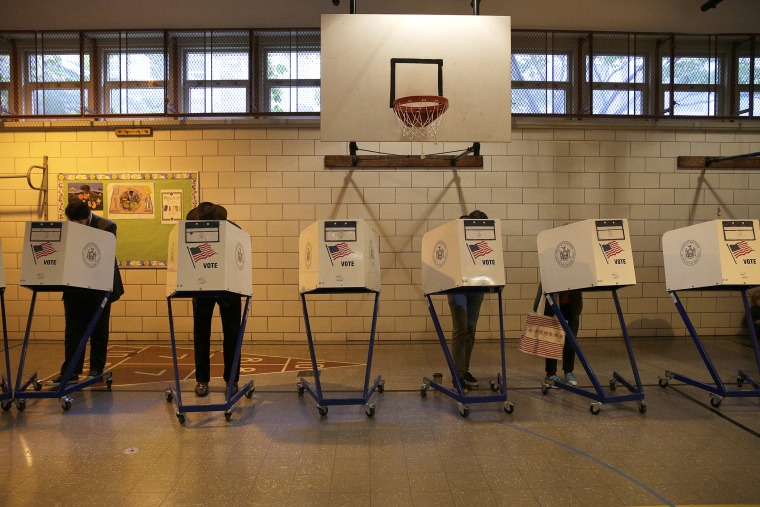If many states' voter-ID laws help represent a modern-day poll tax, perhaps it shouldn't be too surprising that literacy tests strike some as appealing, too.
For example, on "Fox & Friends" this morning, the co-hosts chatted about the state of civics education, and a proposal that would require high-school students to pass the same civics test given to immigrants applying for citizenship. After highlighting some of the more basic questions, viewers were treated to this unfortunate exchange:
STEVE DOOCY: Listen. Not only -- okay, you've got to answer those questions correctly to become a citizen of the United States. I think not only would it be great if high school students had to have a proficiency in America, but I think they should have a test before you vote. BRIAN KILMEADE: That'd be great. ELISABETH HASSELBECK: Not bad, not bad.
Well, actually, it is bad.
Doocy is not the first person to suggest it'd be a good idea to impose tests on Americans before they're allowed to cast a ballot. For much of American history, so-called "literacy tests" were used as a voter-suppression technique, specifically targeting African Americans.
Such tests were common, most notably in the Jim Crow South, starting in the 1890s and still lingering as recently as the 1960s. Whites were generally exempted from taking these state-mandated quizzes -- note, for example, the origin of the phrase "grandfather clause."
Now, it's important to note that the co-hosts of "Fox & Friends" did not suggest a return to Jim Crow policies, and in context, none of their discussion related to race in any way. Their segment wasn't intended as an endorsement of discrimination and to suggest otherwise would be unfair. Watching this, I got the sense the co-hosts probably don't even know how common literacy tests were, why they were imposed, or why Doocy's suggestion might be jarring.
That said, for too much of American history, there was an ugly assumption tied to the franchise: voting rights should be reserved for those the state deemed sufficiently informed. Democracy was simply too important, the argument went, to be put in the hands of those considered ignorant.
Such assumptions were used as a weapon against minorities. There's no reason to turn back the clock.
